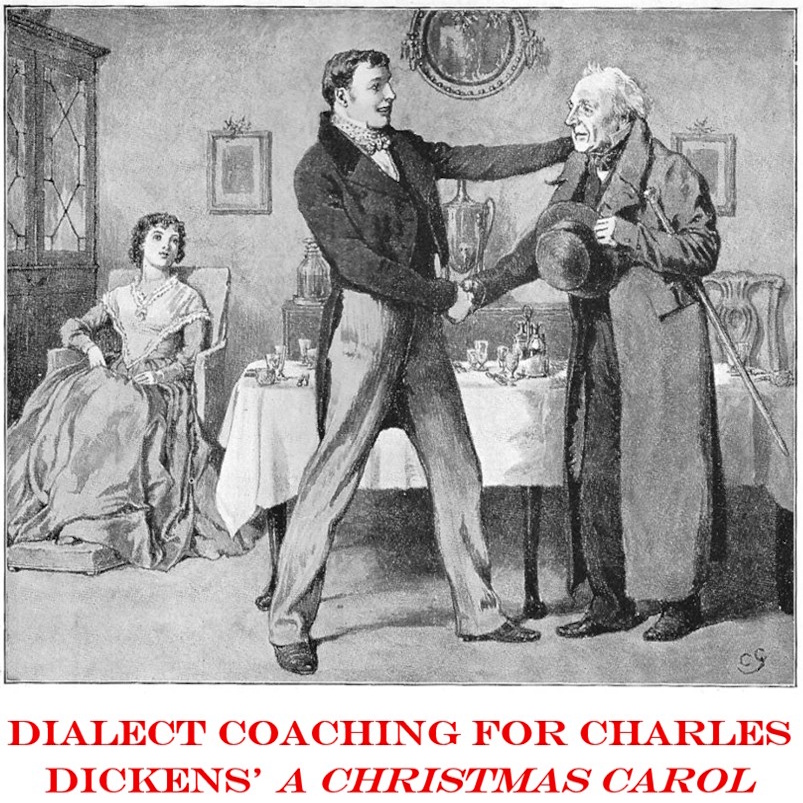Bangladesh 13
Listen to Bangladesh 13, a 26-year-old man from Madarsha, Chittagong, Bangladesh. Click or tap the triangle-shaped play button to hear the subject.
Both as a courtesy and to comply with copyright law, please remember to credit IDEA for direct or indirect use of samples. IDEA is a free resource; please consider supporting us.
BIOGRAPHICAL INFORMATION
AGE: 26
DATE OF BIRTH (DD/MM/YYYY): 03/07/1994
PLACE OF BIRTH: Madarsha, Chittagong (Chattogram)
GENDER: male
ETHNICITY: Chittagonian/Bengali
OCCUPATION: student/tutor
EDUCATION: high school (studying undergraduate 7 semester)
AREAS OF RESIDENCE OUTSIDE REPRESENTATIVE REGION FOR LONGER THAN SIX MONTHS:
The subject was born and brought up in Madarsha in Chittagong (Chattogram) and has not resided anywhere else for six months or longer.
OTHER INFLUENCES ON SPEECH:
The Chittagonian Language (L1) is completely different from the Bengali language (L2). As the subject completed all his education in Bengali medium school, his English is influenced by both his L1 and L2 languages.
The text used in our recordings of scripted speech can be found by clicking here.
RECORDED BY: subject (under supervision of Amin Rahman)
DATE OF RECORDING (DD/MM/YYYY): 06/11/2020
PHONETIC TRANSCRIPTION OF SCRIPTED SPEECH:
ˈKo.ma gets e kɪ.or . we:l, ˈheərz.e ˈsto.ri ˈfɒr.jɪʊ . ˈsa.rah ˈfe.ri waz e ˈve.te.nər.i nars huː hæd bɪnˈwar.kɪŋ ˈdeɪ.li ˈæt.æn old dʒuː ɪn e de.ˈzar.ted ˈdɪ.strɪkt ɒf e ˈte.rɪ.to.ri . so ʃi waz ˈve.ri ˈhæ.pi tʊ e.ˈstɑːrt e nɪuː dʒɒb æt e suː.ˈparb ˈpraɪ.vet præk.ˈtis ɪn nɒrθ skwor neər ðə dIuk striːt, striːt.ˈtaʊ.wər . ðæt ˈe.riə waz matʃ ˈneə.rər fɒr har ænd mo:r tʊ har ˈlaɪ.kɪŋ . ˈiː.ven so, ɒn har ˈfarst ˈmɒr.nɪŋ, ʃi fe:lt stre:sd . ʃi e:t e bo:l ɒf ˈpo.rɪdʒ, tʃekd ˈhar.self ɪn ðə ˈmɪ.ror ænd waʃt har fe:s ɪn e ˈha.ri . ðen ʃi, ðen ʃi pʊt ɒn [uh] e pleɪn ˈjɪe.lo dre:s ænd [uh] e fli:s ˈdʒæ.ket pɪkd ʌp har kɪt ænd ˈhi.ded fɒr wark .
when ʃi ɡɒt ðeər, ðeər waz əˈwʊ.mæn, wɪθ ə, ˈwɪθ.ə.ɡuːz ˈweɪ.tɪŋ fɒr har . ðə ˈwʊ.mæn ɡe:v ˈsa.rah æn ɒ.ˈfɪ.ʃɪal ˈle.tar frɒm ðə vet . ðə ˈle.tar ɪm.ˈplaɪd ðæt ðə ˈe.nɪ.mal kʊd bi ˈsa.fa.rɪŋ frɒm e reər fɒrm ɒf fu:t ænd maʊθ ˈdɪ.ziz, whɪtʃ waz sar.ˈpraɪ.zɪŋ bɪ.ˈkɒz ˈnɒr.ma.li ˈjɪu.ʊd ˈon.li ek.ˈspekt tʊ ˈsiː ɪt ɪn e dɒɡ ɒr e ɡut . ˈsa.rah waz ˈsen.tɪ.ˈmen.tal so ðɪs ˈmet har fi:l ˈsɒ.ri fɒr ðə ˈbɪuː.tɪ.fʊl bard . bɪ.ˈfɔr lɒŋ, ðæt ˈi:.tʃi ɡuːz bɪ.ˈɡen tʊ strat æ.ˈraʊnd.ðə ˈɒ.fɪs ˈlaɪk.e lɒn.ˈtɪk whɪtʃ me:d, ˈmeɪd.æn ʌn.ˈsæn.ɪ.tor.i mes . ðə ˈɡuː.zes ˈoʊ.nar ˈme.ri ˈhær.ɪ.son kept ˈkɒ.lɪŋ, ˈko.ma ˈko.ma whɪtʃ ˈsa.rah θɒt ˈwɒz.æn ɒd tʃɒɪs fɒr e, fɒr e ne:m. ˈko.ma waz ˈstrɒŋ.ænd hɪudʒ so ɪt wʊd te:k sam fɔːrs tʊ trap har bʌt ˈsa.rah hæd e ˈdɪ.fa.rent aɪ.ˈdɪə. ˈfarst ʃi traɪd ˈdʒent.li ˈstro.kɪŋ ðə ˈɡuː.zes ˈlo.ər bæk wɪð har pɑ:m ðen ˈsɪŋ.ɪŋ e tun tʊ har . ˈfaɪ.na.li ʃi æd.ˈmɪ.nɪs.tar.ted ˈi.ðar . har ˈe.fo:rts wear nɒt, fɪʊ, ˈfɪʊ.taɪl . ɪn no taɪm ðə ɡuːz bɪ.ˈɡan tʊ ˈtaɪ.ər . so ˈsa.rah waz ˈe:.bel tʊ ho:ld ˈɒn.tʊ ˈko.ma ænd ɡɪv har e rɪ.ˈlek.zɪŋ baθ .
wans ˈsa.rah hæd mæ.ˈnedʒd tʊ baθ ðə ɡuːs, ʃi waɪpt har ɒf wɪθ e kloθ ænd let har ɒn har raɪt saɪd . ðen ˈsa.rah kɒn.ˈfarmd ðə vets daɪ.əɡ.ˈno.sɪs. ˈɒl.most ɪ.ˈmiː.dɪ.et.li ʃi rɪ.ˈmem.bard æn ɪ.ˈfekt.ɪv ˈtriːt.ment ðæt rɪ.ˈkwerd har tʊ ˈme.zar aʊt ɒf , ˈaʊt.e lɒt ɒf ˈmed i.sɪn . ˈsa.rah wɒrnd ðæt ðɪs kɔrs ɒf ˈtriːt.ment, maɪt, maɪt bi ek.ˈspen.sɪv e.ˈðar faɪv ɒr sɪks taɪmz ðə kɒst ɒf ˈpen.ɪ.sɪ.lɪn. aɪ kɑːnt ɪ. ma:.dʒɪn ˈpe.ɪŋ so matʃ bʌt ˈmɪs.ɪs ˈhær.ɪ.son, ˈhær.ɪ.son, e mɪ.lɪo.ˈneər ˈlɒ.jeər ˈθɒt ɪt wɒz e feər praɪs fɒr e ˈkɪ.or.
TRANSCRIBED BY: Amin Rahman
DATE OF TRANSCRIPTION (DD/MM/YYYY): 08/11/2020
ORTHOGRAPHIC TRANSCRIPTION OF UNSCRIPTED SPEECH:
I was born in a, uh, middle-class family in Chittagong. Uh, my, uh, actually I live in a village which is, uh, nearby River Halda. Uh, we have, uh, five members. Uh, I have one, two brothers and one sister, and my, uh, my father is a, was a businessman and my mother is a housewife. After, uh, serious heart, uh, stroke and, and then, uh, and then, uh, uh, he had a heart surgery. Then he was, now he is unable to work. That’s why, uh, now, uh, I am the only one earning person for my family. But, uh, I’m still a student, so, uh, I can’t manage, uh, two things at once. Uh, that’s why, uh, tuition, uh, is only one, only, uh, main earn, earn source for me right now.
Uh, yeah but yeah, sometimes I face a lot of problems, uh, uh, bearing my family expenses, my own expenses, my university fees. Uh, sometimes I feels a lot of pressure. But, uh, but, uh, in the same time, uh, I feel that, uh, no, I have to take responsibilities because this is my family. So, uh, I can’t, I can’t, uh, see them in a, in a, in a bad situation. That’s why I always, I always try my best to take responsibilities, and I always try my best to, uh, uh, to make my family, uh, happier than before. And, yeah, and I feel that the — they always feel happy and feel proud of me because they know that I am trying my best. And, yeah, they always support me and, and, and it, uh, it gives me a strange strength and, uh, but I think, uh, and I believe that, uh, in future, uh, I will get, uh, I will be success[ful], uh, in my life and I will do something, uh, big in my, uh, future. And as a dreamer, I hope, I, I’ll, I’ll do my best for my family. That’s all.
Some, uh, Chittagonian, uh, Chittagonian, uh, dialects. Not dialogues or sentences. [The subject speaks a sentence, which is written in Bengali script. It’s then followed by its orthographic transcription and English translation]:
1.আম্মু আই ভাত হাইয়ুম
Ammu ai bhat haium.
Mom,I will eat rice.
2.তোয়ারা কেন আছ? (to a group)
Toara keb achho?
How are you?
3.অডি তুই কেন আছস? (to a woman)
Awdi tui ken achhos?
How are you?
4. আই ভালা আছি
Ai bhala achhi.
I am fine.
5.আই ভালা নাই
Ai bhala nai.
I am not well.
6.অডা তুই কেন আছস? (to a man)
Awda tui ken acchos?
How are you?
7.আত্তে গম ন লার
Atteh gawm naw lar.
I don’t feel well/ I feel terrible.
8.তুই হন্ডে যদ্দে?
Tui hawnde hoddey?
Where are you going?
TRANSCRIBED BY: Amin Rahman and the subject
DATE OF TRANSCRIPTION (DD/MM/YYYY): 08/11/2020
PHONETIC TRANSCRIPTION OF UNSCRIPTED SPEECH: N/A
TRANSCRIBED BY: N/A
DATE OF TRANSCRIPTION (DD/MM/YYYY): N/A
SCHOLARLY COMMENTARY:
Speakers of the Chittagong language — researchers categorize it as a language instead of a dialect — make a lot of the /d/ and /dʒ/ sounds as well as frequent nasal sounds. But these sounds do not seem so prominent here. Like many Bengali speakers, the subject interchanged the /z/ and the /dʒ/ sounds. He can pronounce the /f/, /v/, and /w/ sounds, which many Bangladeshis cannot. But he still cannot pronounce the /ʒ/ sound and pronounces it as [z]. The subject pronounces the word “start” as [e.ˈstɑːrt ] adding an /e/ before the word initial cluster sound /st/. Although /d/ takes a prominent role in Chittagonian speech, it was interesting to notice the subject replacing the /d/ sound with /t/ in “laid,” which he pronounced something like [let]. He uses the”uh” filler a lot in his speech. His speaking speed is 110 words per minute, which helps make his speech easily understandable.
COMMENTARY BY: Amin Rahman
DATE OF COMMENTARY (DD/MM/YYYY): 08/11/2020
The archive provides:
- Recordings of accent/dialect speakers from the region you select.
- Text of the speakers’ biographical details.
- Scholarly commentary and analysis in some cases.
- In most cases, an orthographic transcription of the speakers’ unscripted speech. In a small number of cases, you will also find a narrow phonetic transcription of the sample (see Phonetic Transcriptions for a complete list). The recordings average four minutes in length and feature both the reading of one of two standard passages, and some unscripted speech. The two passages are Comma Gets a Cure (currently our standard passage) and The Rainbow Passage (used in our earliest recordings).
For instructional materials or coaching in the accents and dialects represented here, please go to Other Dialect Services.
 IDEA: International Dialects of English Archive
IDEA: International Dialects of English Archive



